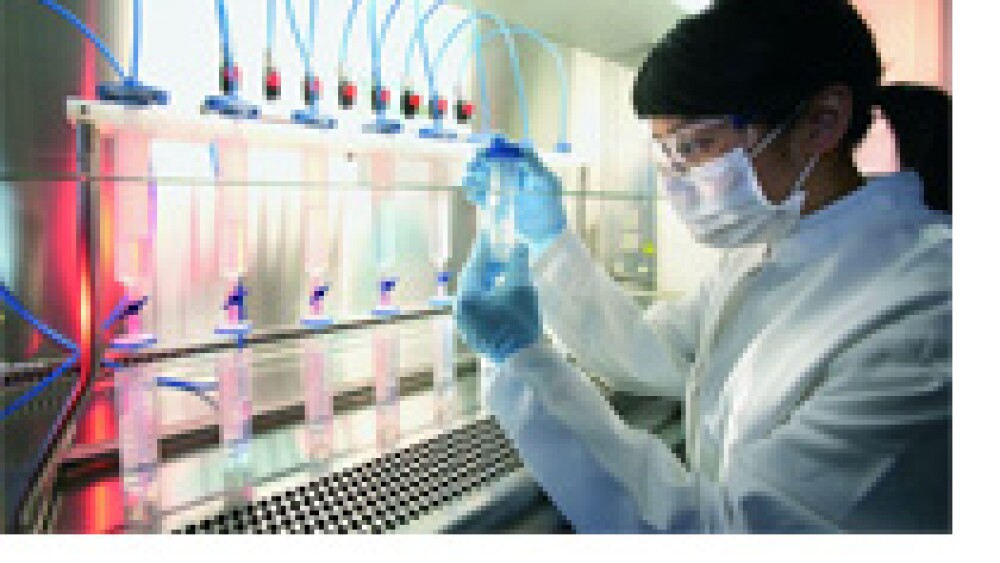December 30, 2015
By Alex Keown, BioSpace.com Breaking News Staff
BOSTON – The Boston area has been one of the most thriving hubs of the life sciences industry in recent years as more and more companies flock to the area to take advantage of innovations being made in the area. Some of these companies have seen dramatic gains in stock prices over 2015, pleasing investors.
The Boston Business Journal laid out the top five biotech companies in Massachusetts that have seen the greatest stock gains on the Nasdaq exchange over the past year.
1. Sarepta Therapeutics
The company, working on a treatment for Duchenne Muscular Dystrophy, has seen a stock gain of 168 percent over the past year. The is currently trading at $39.70 per share, up from $14.52 per share in December of 2014. Sarepta is scheduled to appear before an FDA panel on Jan. 22 for its DMD treatment, eteplirsen. Sarepta’s drug has shown positive results, although the trial size has been small, which may cause some issues. Eteplirsen is designed to target the underlying cause of DMD by enabling the production of a functional dystrophin protein in patients with mutations amenable to exon 51 skipping.
2. Dyax Pharmaceuticals
Dyax is developing DX-2930, a treatment for hereditary angioedema, which has shown tremendous success in treating patients, an 88 percent reduction in attacks. That success has spurred Ireland-based Shire Pharmaceuticals, which has its own HAE treatment, Cinryze, to acquire the company. Dyax stock is currently trading at $37.64 per share, up from $14.07 per share in December of 2014.
3. ImmunoGen
The company has seen a 135 percent growth in its stock, based in part on an experimental ovarian cancer treatment, mirvetuximab soravtansine, a novel folate receptor alpha, that has shown promising results in early trials. ImmunoGen stock is currently trading at $13.80 per share, up from $6.02 per share in December of 2014
4. Curis
Curis has seen a 92 percent growth in its stock prices based in part on the acquisition of cancer treatments from Aurigene, including a new immune checkpoint modulator, AUNP-12. Trials are expected to begin next year. Curis stock is currently trading at $3.07 per share, up from a low of $1.29 at the beginning of 2015.
5. ArQule
Bolstered by its experimental prostate cancer drug, ArQule has seen a stock growth of 80 percent in 2015. ArQule stock is currently trading at $2.14 per share, up from $1.14 per share in December of 2014.
While there have been strong stock performers this year of Massachusetts-based biotech companies, there have also been some that have not fared so well, including InVivo Therapeutics , which has lost approximately half of its value since the beginning of the year. In April, the stock hit a 52-week high of $19.68 per share, before crashing to a low of $1.96 per share in August. The stock has rallied back to its current price of $7.38 per share.
Another Boston-area company that has taken a hit is Karyopharm Therapeutics, which has lost about 70 percent of its value in the past year after cancer patients in clinical trials developed sepsis. The stock is currently trading at $13.64 per share, down from a high of $37.99 in January.
Another Massachusetts-based company taking a big stock loss this year is OvaScience. OvaScience’s prices hit a peak high of $53.46 per share on March 24, but since then the stock has shown a lot of movement, but mostly in decline. In August, OvaScience published a study of its Augment fertility treatment, which compared it to standard in vitro-fertilization. According to the study, OvaScience’s treatment proved more beneficial than IVF treatments. One reason for the stock decrease is related to the U.S. Food and Drug Administration telling the company that its treatment technology should be regulated like a drug, as opposed to a biological process. The biological process approval has a lower bar to overcome.
In all, this has been a rough year for biotech stocks. The Nasdaq Biotechnology Index is looking at a 12 percent year-to-date gain for the year, but that’s down from the four previous years, the Boston Business Journal said.





